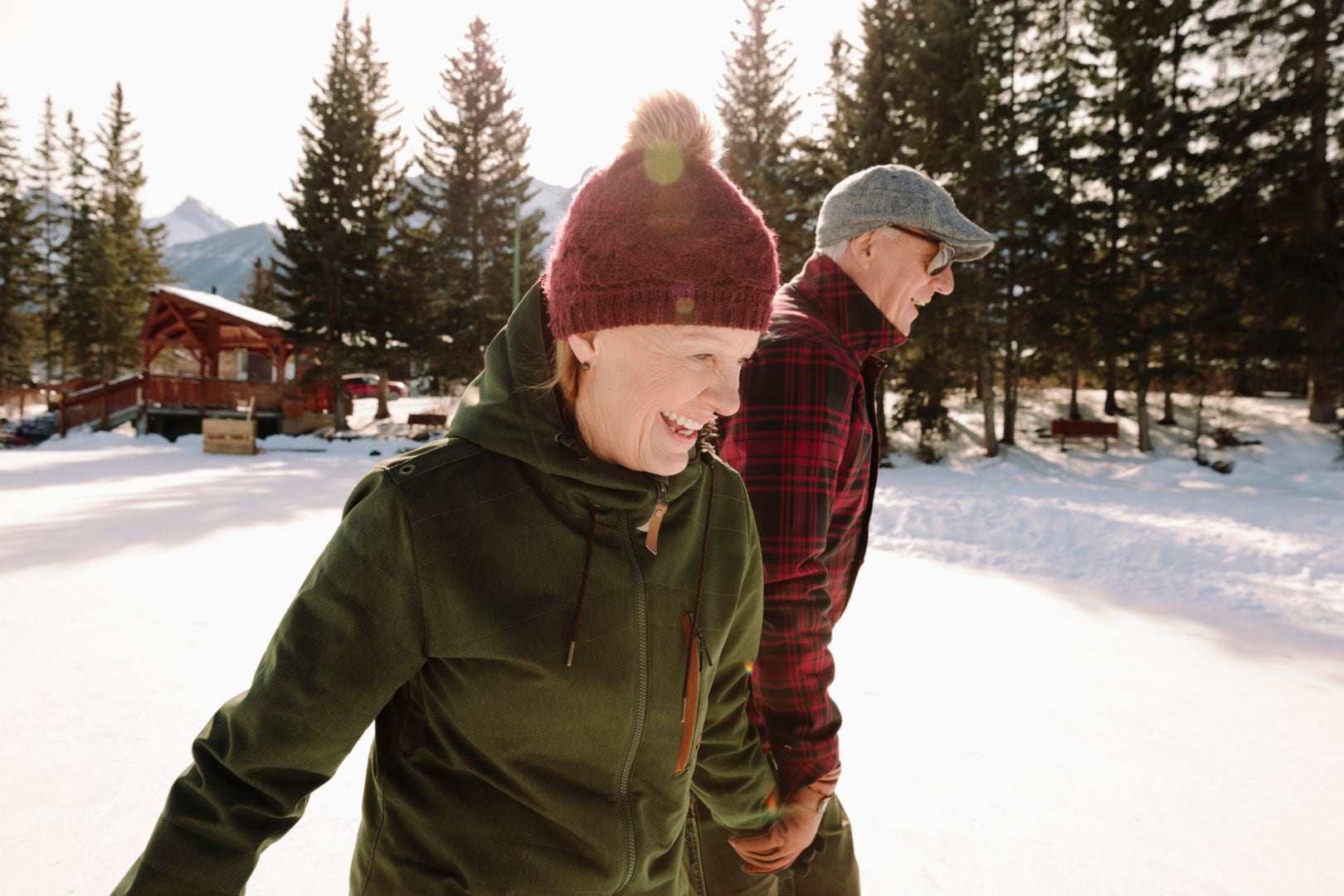During the winter months, ice, snow and cold temperatures can make life challenging for anyone. Slippery sidewalks and cold weather can cause a wide range of injuries and illnesses, especially for older people.
While finding senior care to assist older adults on a regular basis can help keep loved ones safe during any season, the following winter safety tips for older adults can be especially helpful for preventing common cold weather dangers to seniors.
1. Avoid slipping on ice
Icy, snowy roads and sidewalks make it easy to slip and fall. “Unfortunately, falls are a common occurrence for senior citizens, especially during the winter months,” says Dr. Stanley Wang, a physician at Stanford Hospital in Palo Alto, California. Often these falls cause major injuries such as hip and wrist fractures, head trauma and major lacerations.
While younger people often recover relatively quickly from such injuries, older adults face complications, which Wang says are a leading cause of death from injury in men and women over the age of 65.
For that reason, he recommends older adults wear shoes with good traction and non-skid soles, and stay inside until the roads are clear. Replacing a worn cane tip can make walking easier, and older people are advised to take their shoes off as soon as they return indoors, because often snow and ice attach to the soles and, once melted, can lead to slippery conditions inside.
2. Dress for warmth
Cold temperatures can lead to frostbite and hypothermia, a condition in which the body temperature dips too low. According to the Centers for Disease Control and Prevention, death rates attributed to excessive cold or hypothermia in 2019 increased steadily with age among those aged ≥15 years in both metropolitan and rural areas.
That’s why older adults are advised to wear warm socks, a heavy coat, a warm hat, gloves and a scarf if heading outdoors. In very cold temperatures, they should cover all exposed skin and use a scarf to cover their mouth.
If you confirm via thermometer that your older loved one’s temperature has dipped below 95 degrees, seek medical assistance immediately.
3. Fight wintertime depression
Because it can be difficult and dangerous to get around, many older adults have less contact with others during cold months. This can breed feelings of loneliness and isolation.
To help avoid these issues, family members can check in on seniors as often as possible or send their loved one to adult day care; a short, daily phone call can also make a big difference. Seniors can also arrange a check-in system with neighbors and friends, where each person looks in on one or two others daily.
4. Keep the car tuned up
Driving during the winter can be hazardous for anyone. But it is especially dangerous for older people, who may not drive as often anymore or whose reflexes may not be as quick as they once were. Get their car serviced before wintertime hits. Checking the oil, tires, battery and wipers can make a big difference on winter roads. Also make sure your older loved one’s roadside assistance plan is up-to-date in case of emergencies. If driving is necessary during the winter, review safe and reliable senior transportation options.
5. Prepare for power outages
Winter storms can lead to power outages. Make sure your older loved one has easy access to flashlights and a battery-powered radio in case the power goes out. Stockpile warm blankets. Longer power outages can spoil the food in your refrigerator and freezer so keep a supply of non-perishable foods that can be eaten cold on hand. If the power goes out, older adults should wear several layers of clothing, including a hat. Check out this winter weather checklist from the CDC to make sure your loved one has everything they may need.
6. Eat a varied diet
Because people spend more time indoors and may eat a smaller variety of foods, nutritional deficits, especially vitamin D deficiency (which has been associated with health concerns like cognitive decline, depression and osteoporosis, among others) can be a problem. Nicole Morrissey, a registered dietician in southwest Michigan, recommends that older people consume foods that are fortified with Vitamin D, such as milk, grains and seafood options like tuna and salmon.
7. Prevent carbon monoxide poisoning
Using a fireplace, gas heater or lanterns can lead to carbon monoxide poisoning. Ensure your loved one’s safety by checking the batteries on their carbon monoxide detector and buying an updated one if you need to.
The most important tip to keep in mind during the colder months is to encourage older people to ask for help. Whether they need to clear their property of snow and ice, or stock up on nourishing groceries, they should feel free to ask a family member or neighbor or hire a professional.
Wintertime certainly poses challenges for older adults, but with a bit of planning and awareness, they will stay healthy and experience the joys of springtime soon enough.







